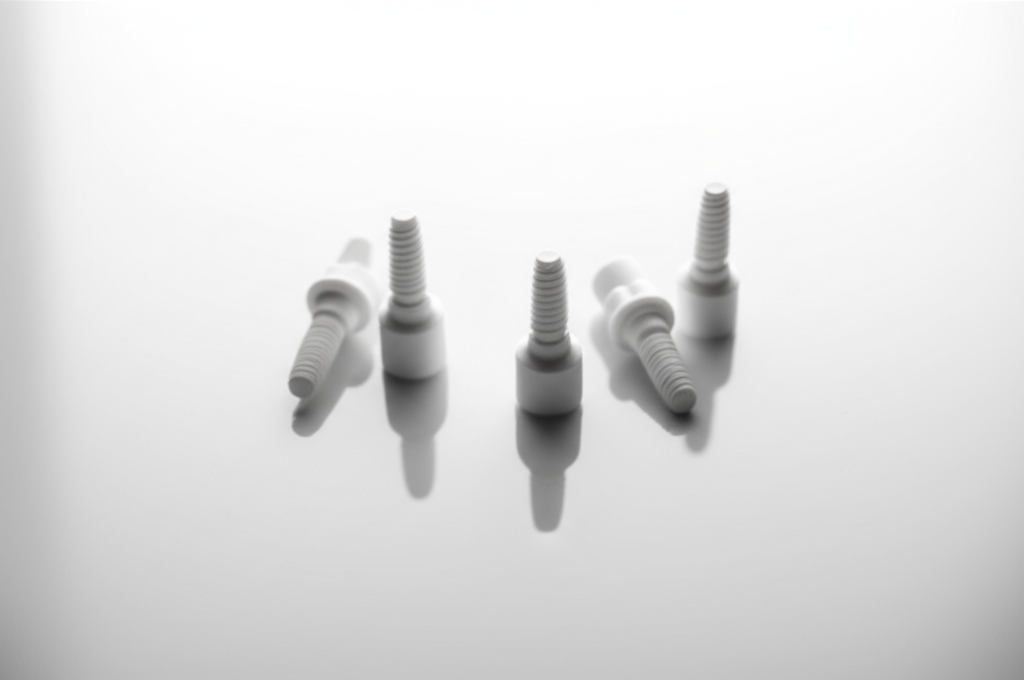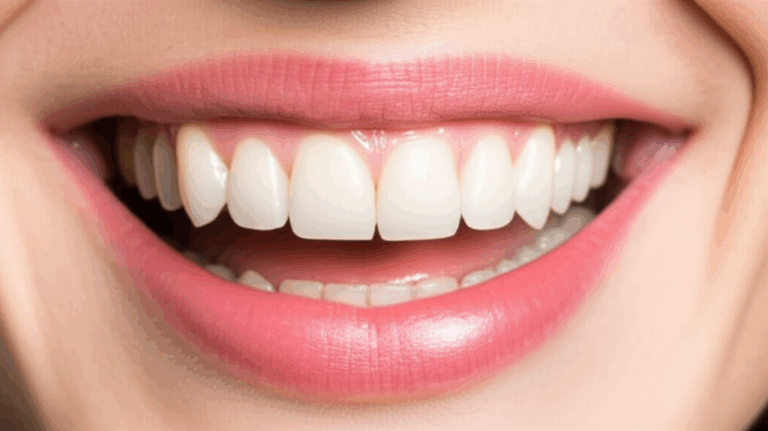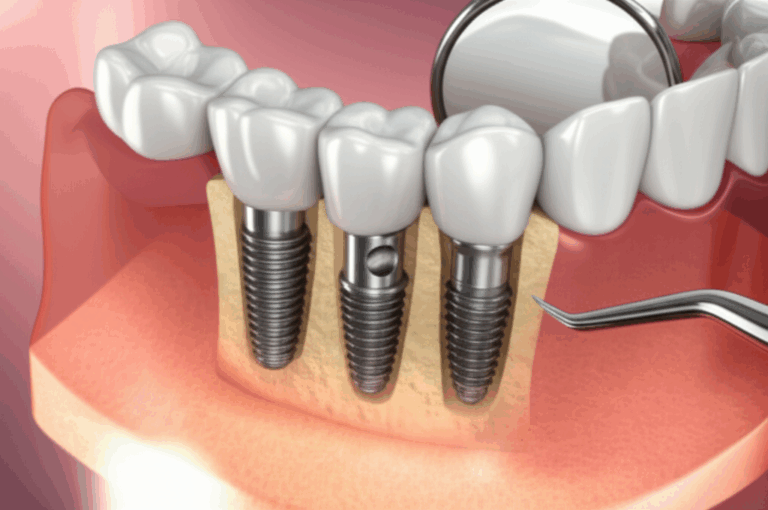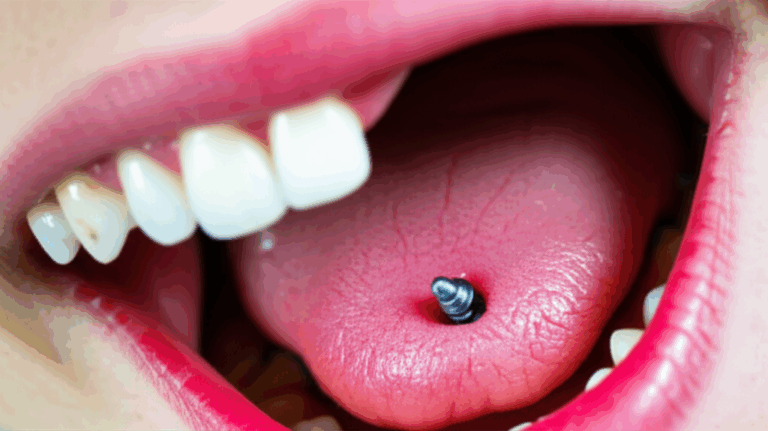
What Are Zirconia Dental Implants? Your Complete Guide to Metal-Free Tooth Replacement
Are you thinking about replacing a missing tooth but feel lost in all those dental words? You’re not alone. Picking the right kind of dental implant is a big choice. In this article, I’ll use easy words to show you what zirconia dental implants are, how they’re different from other kinds, why people talk about them, and what you should think about before you decide.
Worried about being allergic to metal? Want your teeth to look real? Or just want to know what your dentist is talking about? This article will help. Let’s find out if these “white implants” might be what your smile needs!
Table of Contents
Introduction: Why People Want Better Tooth Replacements
Ever feel embarrassed about a missing tooth? I have, and so have many people I know. We all want to look good, talk easy, and eat what we like with no pain or feeling weird. But when it comes to putting in new teeth, not all choices are right for everyone.
What Exactly Are Zirconia Dental Implants?
Let’s make it super simple.
Meaning: Zirconia dental implants are tooth roots made from a white, really strong ceramic called zirconium dioxide (ZrO2). No metal here—these implants are all ceramic, so they’re great if you want no metal at all.
Why is zirconia different? See the table:
| What | Zirconia (ZrO2) | Titanium (Metal) |
|---|---|---|
| Color | White, looks like teeth | Gray or silver |
| Material | Ceramic (no metal) | Metal mix |
| Allergy chances | Super rare | Low, but can happen |
| Strength | Strong (breaks differently) | Very strong |
| Rust risk | None | Possible, but rare |
| Electric current | No | Yes, can carry small current |
What’s inside: Zirconia is safe in your body—it doesn’t react. It usually doesn’t cause allergies. Your dentist might mention Yttria-stabilized zirconia—this just means it’s made even stronger.
Shapes: There are two kinds:
- Single piece implants: The root and connector (that holds the fake tooth) are all one.
- Two piece implants: The root and connector are in two parts. This gives the dentist more ways to fix bites.
Don’t mix up zirconia crowns with implants—a crown just goes on top, while an implant is the root in your jaw.
How Are Zirconia Implants Different from Titanium Implants?
You might ask why dentists used titanium for so long if zirconia is so good. That’s a good question! Titanium is proven and tough. But zirconia has some new benefits.
Material and Visits: Zirconia is ceramic with no metal. Titanium is a metal mix. Some people are allergic to metals, even if it’s not common. Also, a few people get grayness at their gum line if they have thin gums.
How the Body Likes It: Both materials join to your bone well—that’s called “osseointegration.” But zirconia is friendly to your gums. Less sticky stuff (plaque) grabs onto it, so your gums can stay healthier.
Some studies show zirconia dental implants can lower gum swelling and maybe lower the chance of gum disease around the implant.
Looks Count: Ever been told you have something in your teeth? No one wants a gray gloom on their gums! With zirconia’s white color, you avoid that.
Strength: Both can handle chewing very well, but if something bad happens, they break differently. Titanium might bend a bit or break. Zirconia is hard—if it fails, it can snap. But both last a long time if you take care of them.
Cost: Zirconia usually costs a little more, since making and placing it is harder.
Data Over Time: Titanium has been around for over 40 years, so we know a lot about it. Zirconia hasn’t been around as long, but doctors are finding good results.
What Makes Zirconia Dental Implants Special?
So, why try zirconia dental implants? Here’s why they might be better.
Looks Like Real Teeth: If you want your tooth to look super natural, especially up front, zirconia is best. Its white color is close to real roots. Even a dentist may have to look twice! No gray marks.
Fits Most Bodies: Worried about metal in your body? You’re not alone. Good news—zirconia almost never causes allergies.
Less Plaque, Healthier Gums: No one likes dirty teeth! Zirconia is so smooth that less sticky stuff can stay on it. That helps your gums stay healthy.
- Some research says plaque sticks less to zirconia implants than even many real teeth!
Holistic and Natural Dentistry: Many dental places now offer more natural fixes. Zirconia is perfect for this—no metal, no worries.
One-Piece Choices: For some people, having one solid piece keeps germs from getting inside. This can help keep things cleaner.
Are There Any Drawbacks?
Nothing’s perfect. Zirconia dental implants do have some downsides.
Can Crack: While zirconia is strong, it’s a bit like glass. Bite too hard on something tough (an olive pit, hard candy), and it could crack. Titanium bends more before breaking, but zirconia can just snap if it gets hit too hard. But with new designs, this doesn’t happen much.
Shape Limits: In the past, zirconia implants were mostly made in one piece, which didn’t work for everyone. Now you can get ones in two pieces, but titanium still gives dentists more options for really tricky mouths.
Higher Price: Zirconia can cost more at first. Making these implants is harder, and not everyone knows how to work with them.
Needs Special Skills: Not all dentists know how to put in zirconia implants. Make sure you go somewhere with people who use the right tools and have training.
Not As Much History: Zirconia is newer. There’s about 10-15 years of study, while titanium has more than 40 years. We’re still learning.
Who Should Consider Zirconia Dental Implants?
Wondering if zirconia might be for you? Let’s see.
You might want zirconia implants if:
- You’re allergic or sensitive to metals (like titanium).
- You want your new tooth to look super real, especially in front.
- You want all-natural or metal-free dental care.
- Your gums are thin, and you hate gray lines.
- You really care about your gum health.
Who might not want them (or might need to wait)?
- If you need a really fancy shape (like your bite is tricky or your jaw is special), titanium might be better.
- If your jawbone is very thin or gone, you might need things fixed first, like a bone graft.
Tip:
Your dentist will check your mouth, maybe do digital X-rays or a scan, and plan what’s best for you. Ask for all your choices next time you visit your dentist.
How Does the Implant Procedure Work?
Getting a zirconia dental implant isn’t magic—it just takes a careful plan. Here’s what happens:
1. First Visit and Planning
Your dentist looks at your jaw, gums, and teeth. They may take a special X-ray or scan to plan where the implant will go.
2. Implant Goes In
When it’s time, you get your mouth numbed (sometimes a little extra medicine if you’re worried). The dentist puts the zirconia post in your jawbone. This is a small surgery and is not as scary as most people think!
3. Healing Time
Now you wait for your bone to grow around it and hold it tight. This is called osseointegration and can take a few months.
4. New Tooth Goes On
Once healed, your dentist puts on the connector and new tooth (crown), matched to your other teeth. Some dental labs use computers or even 3D printers to make these crowns fit just right.
5. After Care
You’ll get simple instructions: keep your teeth clean, brush, and don’t bite hard foods while healing. And keep seeing your dentist for check-ups!
How Much Do Zirconia Dental Implants Cost?
Money is a real thing to think about:
- Zirconia implants usually cost a bit more than titanium.
- Prices are different everywhere—most places in the U.S. charge $2,000 to $6,000 per implant. This depends on where you live, which dentist you pick, and whether you need extra fixes.
- Need more than one implant or a bone graft? This will cost more.
- Not all dental insurance pays for implants. Ask if they do and about payment plans.
| What Affects the Price | How It Changes Cost |
|---|---|
| Number of implants | More teeth = more money |
| Where you live | Big cities usually cost more |
| Lab type | Fancy labs = might pay extra |
| Needing extra work | Bone fixes or other things cost more |
| Type of tooth fix | One tooth, bridge, or full set |
How Long Do Zirconia Implants Last?
You want your new tooth to last a long time, right? Studies show zirconia implants can last 10-20 years or more if you take care of them—like titanium ones. Taking care of your mouth and visiting the dentist is key.
Experts say, as time goes by and technology gets better, zirconia’s record will be just as good as titanium except maybe in really hard cases. Companies like Straumann, Nobel Biocare, Z-Systems, and CeraRoot keep working to make them better.
Caring for Your Zirconia Dental Implants
Just because your new tooth looks good doesn’t mean you can forget it!
Keep your zirconia implants healthy:
- Brush two times every day with a soft toothbrush.
- Floss gently around the implant to keep out gunk.
- Go to your dentist for check-ups and cleanings.
- Don’t chew ice, hard popcorn bits, or very hard foods.
- Tell your dentist if it feels loose or hurts.
Conclusion: Is Zirconia Right for Your Smile?
Here’s the simple truth.
If you want a tooth that matches your smile, keeps your gums happy, and has no metal, zirconia dental implants could work for you. Find a dentist who knows how to put in ceramic implants and works with a good dental lab.
Remember:
- Think about what you want. Do you need it to look good, be metal-free, or have the most history?
- Talk over your choices with your dentist.
- Keep all your teeth clean, not just the new ones.
Frequently Asked Questions (FAQ)
Are zirconia implants safe?
Yes! They’re checked by the FDA, safe for your body, and almost never cause allergies.
Do zirconia implants feel real?
Totally! Most people forget they have them after healing.
Can they break?
Like any tooth thing, they can break if you don’t take care. But it’s pretty rare.
Is the surgery painful?
Mostly people say it’s like taking out a tooth. It’s usually not bad with numbing medicine.
Can I eat normally then?
After healing, you can chew almost anything you like!
Does insurance pay?
Sometimes yes, sometimes no. Always ask for prices and check what your plan covers.
Key Takeaways
- Zirconia dental implants are strong, white, metal-free tooth roots.
- They suit people with metal worries or who want their new tooth to look real.
- Benefits: white color, smooth surface for healthier gums, and no rust or electricity.
- Downsides: higher cost, rare breaking, and not as much history as titanium.
- Picking a dentist skilled with ceramics and a good lab means the best result.
- Brushing, flossing, and check-ups will keep your implant strong for years.
Ready for the next step?
Talk to your dentist about zirconia dental implants to see if they’re the natural, long-lasting fix for your healthy smile!








